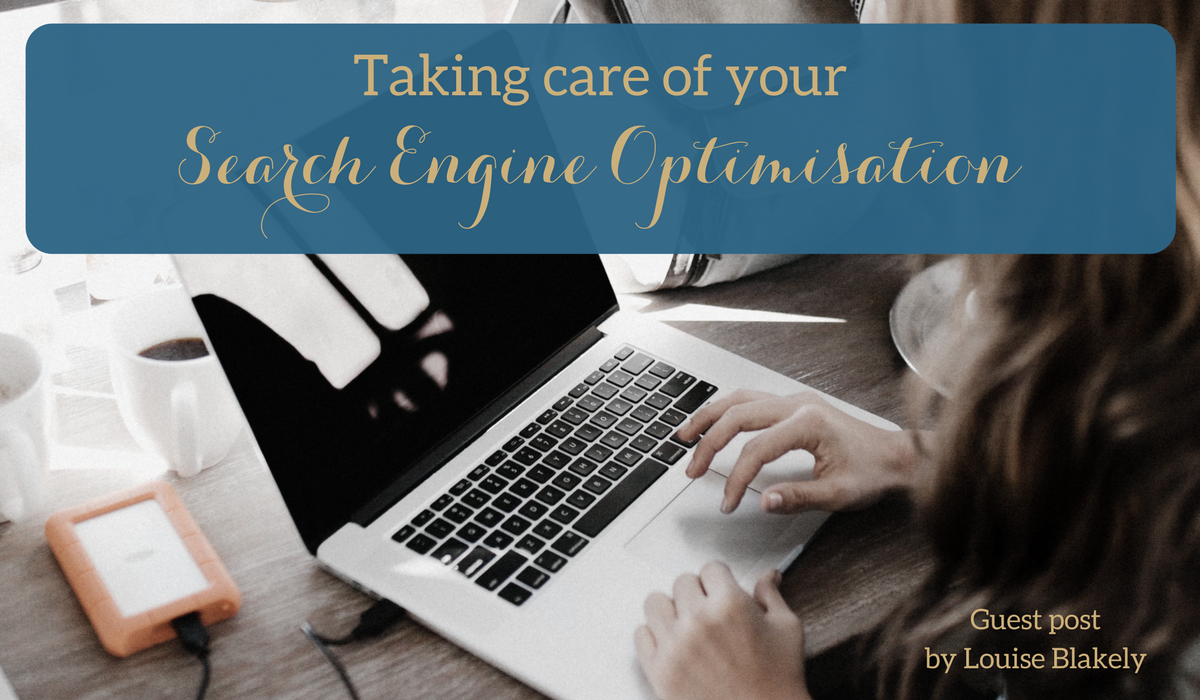SEO – it’s so important, but sometimes those three little letters make me want to go and have a lie down. So I asked the fabulous Louise Blakely over at Hooked on Marketing to give us the low down on what you really need to know about search engine optimisation. This is her guest post.
Do the three letters SEO have you running for cover?
If so, you’re certainly not the only one.
But the reality is if you’re not taking care of optimising your website for search engines, you’re leaving money and opportunities on the table. SEO is a competitive landscape, and those competitors of yours who are making the effort will be getting higher sales as a result. Don’t let them have the upper hand!
I’m going to give you a few tips that will move you from simply knowing that you need SEO, to actually taking steps towards having your onsite optimisation sussed.
To get started, we’re going to look at three areas:
1. Find your keywords
Have you put some thought into what keywords people are searching for when they are looking for whatever product or service you’re selling?
Think beyond your brand name and your own name – this is only reserved for those who already know you. This is more about getting in front of those people who don’t know YOU yet.
It’s time for a brainstorm! Grab a piece of pen and paper and write down everything you would search if you were a potential customer. Then Ask your friends, what would they search?
After you’ve got this list, think of synonyms for some of these words.
Now head over to your Google Adwords account, and find the Keyword Planner in the Tools dropdown. Add all of your keywords into the section that says ‘Get search volume data & trends’. Choose your desired location and then review the traffic volume for those keywords.
The sweet spot is those keywords that have the lowest competition. Make a shortlist from there and we’re ready to move onto the metadata.
2. Sort out that metadata
Now that you’ve got the keywords you’re going to focus on, it’s time to optimise your website for them.
Each page should have one keyword that it targets specifically, so don’t just target one keyword with your entire site as your website pages will compete with each other. Think of each new page as a chance to rank in Google for something different.
So decide on what page is going to target what keyword and work through each page updating the metadata.
Starting off with the metadata, adjust the title tag and the meta description. The title tag should include your keyword towards the front. If this is your homepage, it’s likely your keyword is your brand. However on other pages, your brand should feature towards the end so you can place emphasis on new keywords towards the front.

The meta description doesn’t actively influence search engine results but it does help with click through. So while you can include your keyword here, it’s more important to make it enticing enough to make someone want to click.
While you’re at it, go through each page and make sure your chosen keyword for that page features 2-3 times throughout.
3. Start measuring your success
Now that you’ve got the basics of SEO sorted, it’s time to start tracking your progress.
While I find paid tools such as Moz are better for tracking keywords over time, there are free tools that you can use on a one-off basis, which you can check monthly and keep track of your progress in your own spreadsheet.
Try the free tool from SERPS, choose your keyword along with your location and see where you’re currently tracking. Repeat one month later.
These are the absolute basics you need to get started. In reality, SEO isn’t as difficult as many would have us think. Of course it depends on your niche and how competitive your keywords are, but most of you will be able to improve your current search engine results with a few simple strategies. Now it’s time to dig in and get started.
Need to spruce up your SEO? Louise is running a FREE five-day challenge to sort out your SEO once and for all. It starts next Monday 4 September – and you can sign up here.
Louise Blakely is a Digital Marketing and Business Strategist who specialises in business growth with SEO, Google Adwords and Facebook advertising. You can find her at www.hookedonmarketing.com.





